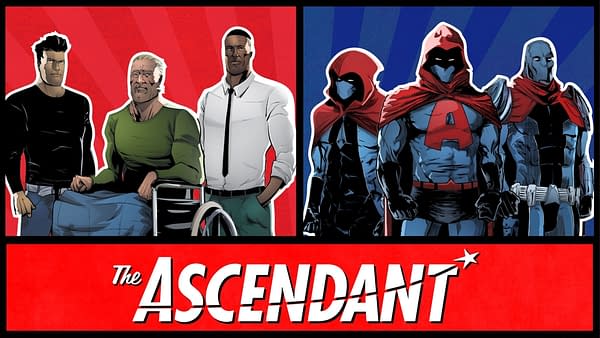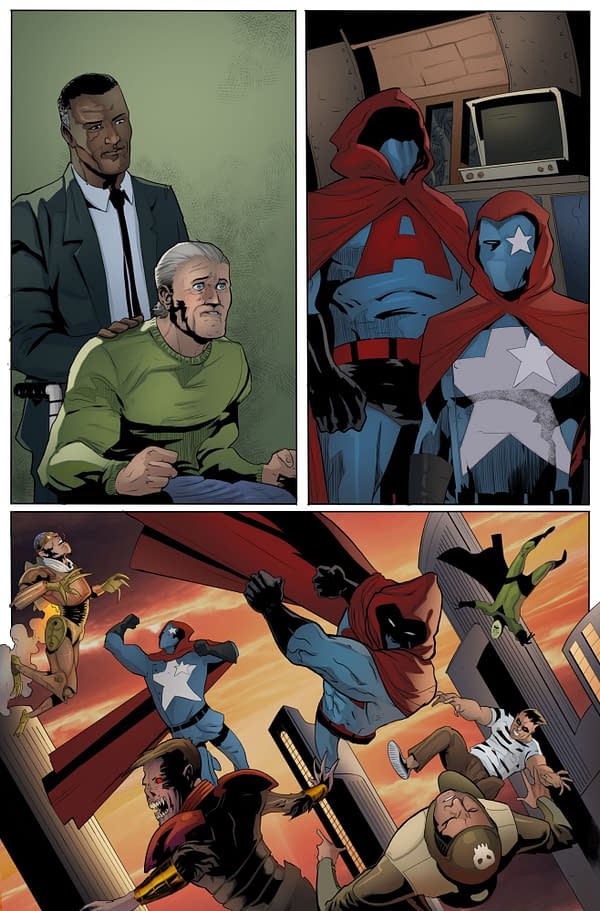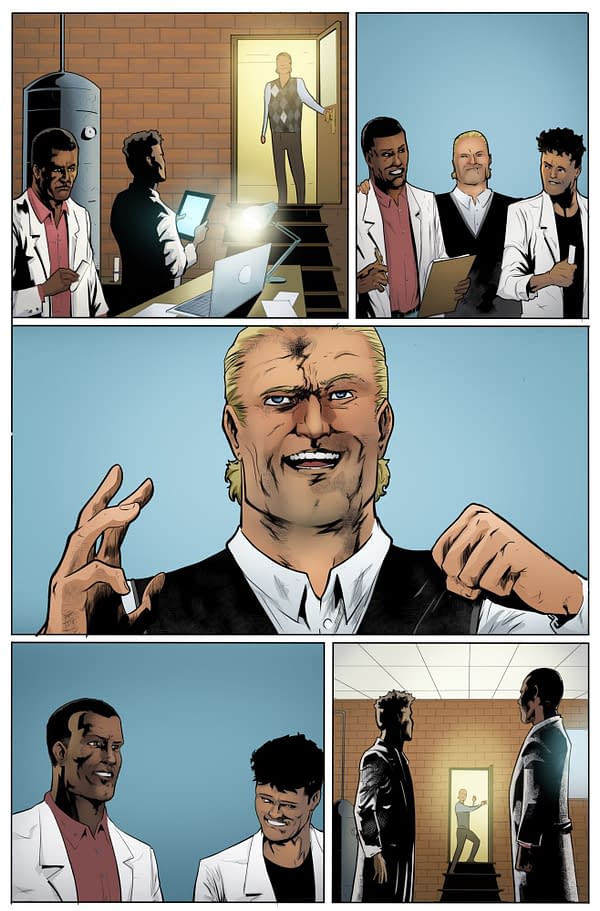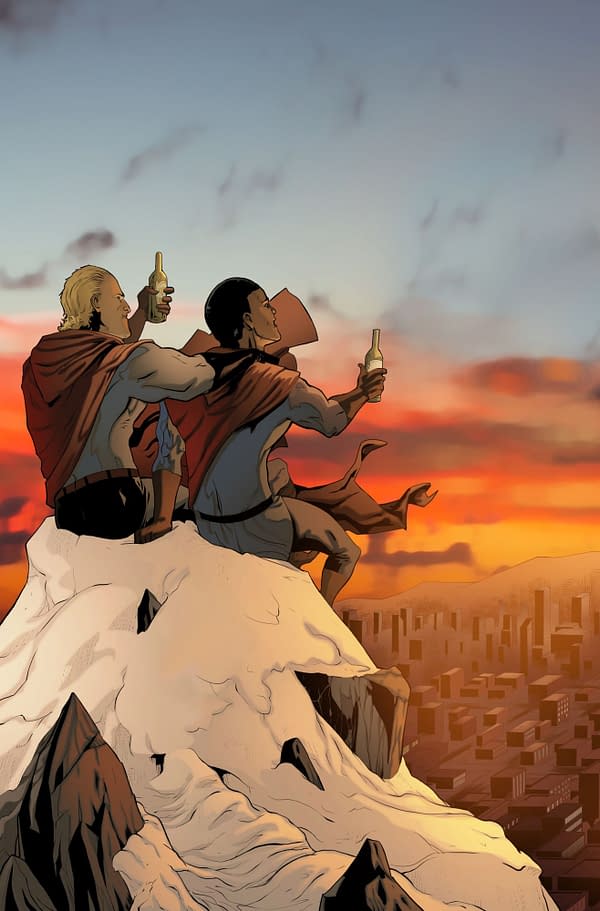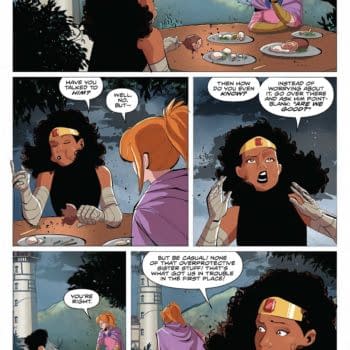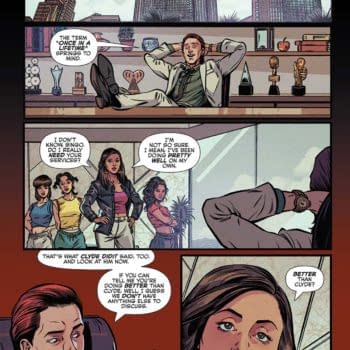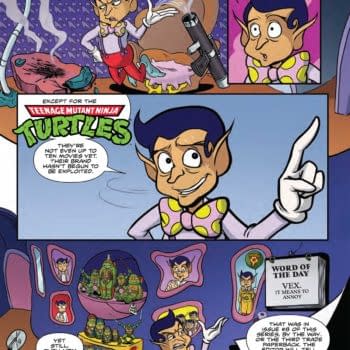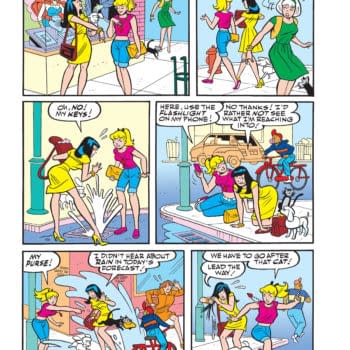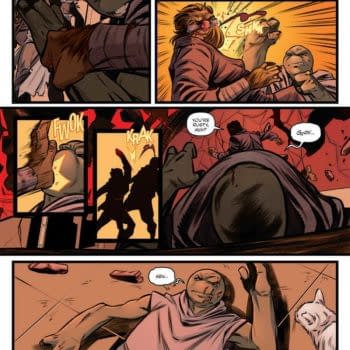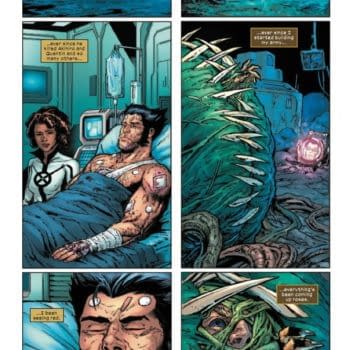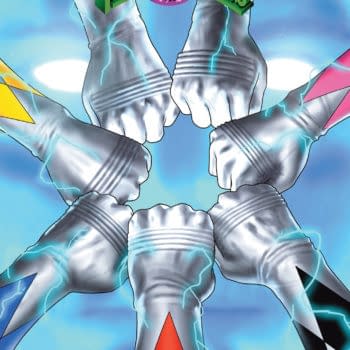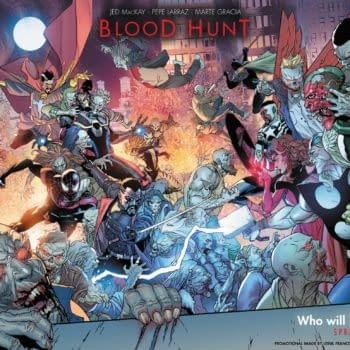Posted in: Comics | Tagged: kickstarter, luke martinez, The Ascendant
Understanding Comics, Understanding Ourselves
Luke Martinez, creator of The Ascendent on Kickstarter, writes:
Two years ago, one of my high school students told me, "I never knew comics could be like this!"
While teaching my English class, I assigned my students graphic novels and trade paperbacks to read. We had been through classics and Shakespeare, and I wanted to introduce them to what, for me, is the most iconic and American of all art forms: comics. The readings included a variety of choices in style, from Batman: The Long Halloween and Kingdom Come to Persepolis and Maus. The students gathered in that class were mostly of the non-nerd persuasion; comics, for them, still dwelled in a realm belong to a different kind of student. Many had seen the Marvel or DC movies and liked them, but very few had looked at an actual comic page.
To my delight, I found them to be eager readers. Athletes and cheerleaders, band kids and drama kids, and students from along the spectrum of achievement and engagement found something they liked. Even kids who had previously shunned reading were interested. Once I helped them understand how the pictures and words worked together to create a story, they were off. Students were intrigued by Batman's mission, and the contrast with Harvey Dent's transition to Two-face, and loved the mystery. I saw students weep while reading Maus and Persepolis, relating the struggles of those families to their own. Among my students are many whose family come from other countries (especially Mexico) and they could relate to those stories. Personally, I was most proud of those readers of Kingdom Come (a personal favorite) who got into heated discussions about idealism, the responsibility of people to act in the interest of all people, and the morals and ethics of power.
In each situation, young people new to comics experienced what all of us know about comics. They learned that while we love the art, the heroes, and the form, the thing that truly binds them to us is the way they help us understand ourselves. There is a good chance that your favorite stories correlate to something within yourself, connect with some theme in your life that is important. Like most great forms of art, comics allow us to be introspective by catching us off guard; while lost in the panels and pages we discover that we have been ruminating on something much deeper. Our engagement with the story is really an engagement with ideas and experiences, and the iconic and archetypal stories and characters have a unique way of reaching us. As my surprised student had learned, comics are capable of greatness that many do not recognize.
I'm no different. It was in watching these discussions among my students that I recalled, joyfully, the way that comics shaped me and helped me understand myself. I recalled my first experiences with Superman, the most powerful being on Earth who chooses to be great. When I was a young man who felt left out and unaccepted, it was the X-Men that encouraged me to still do things the right way – even if those I did it for wouldn't appreciate it. Like many young men the trials of Spider-Man seemed especially insightful. It still happens; a few years back, when Johnny Storm died in Fantastic Four, I read the issue where Franklin and Spider-Man mourned for great lost uncles; I had recently lost my own uncle, and the emotional resonance may have resulted in tears on the page.
It was in reading Kurt Busiek's Astro City that I saw this form taken to the next level. The creative team had found a way to go even deeper by using our conceptions and expectations about comics, and using those in tandem with real, human experiences in a more intimate and connected way than any comic before. While the stories could be extremely meta and analyze superheroes in new and moving ways, it was the skillful way Busiek and Anderson wove in revelations about people and their experiences of that world that were most powerful. Luckily for all of us, Astro City is not the last comic to do this, but it certainly indicated that there was an audience for this kind of study.
I wanted to bring my own experiences to bear in a comic tale of my own, and I have done so in a graphic novel, the subject of my current Kickstarter project, The Ascendant. The story centers on an iconic superhero called The Ascendant, the world's first and best superhero, and his sidekicks. As each generation of Ascendant passes the cowl to their successor, we study the relationships of mentors and mentees, of father-figures and the young men they guide. I have been lucky enough to have great men in my life like my grandfather and my father, as well as many others, who have made me better in many ways. Comics have often explored famous relationships between generations of heroes, and I felt I had something to say on the subject. Furthermore, I had the advantage of time — my characters could get older and we could see them as age and time complicated their relationship and experiences. In real life we find that the errors and failures of those who taught us can be painful and disorienting, but it is precisely those shortcomings that make them real people, and we have to learn that. By adding in the experiences of age, this learning experience is made more apparent, and sometimes, more difficult.
I also wanted to parallel my own real life in the characters, hoping to make the same connection that my students discovered on their first experience with comics. One of the major figures of my young life was my grandfather, who suffered from cancer that spread to his brain and robbed him of his keen mind. When it did, this powerful, brilliant man lost those gifts and I felt confused and lost; only when your hero is reduced like this can you grasp the influence they had on you. Similarly, the original Ascendant of my story, Grant Barnes, is experiencing dementia and the ravages of age, and his former sidekick and successor, Ted Sellers, is left to pick up the pieces and cope with this loss. Similarly, as I have gotten older my relationship with my father got complicated, then wonderful, because we learned how our relationship needed to change to suit our needs, and our imperfections. No one can always be the same hero they were when you first started idolizing them — but they can be something more real, something better. This is similar to the experience of Ted Sellers and his own successor, Jaime Garcia, in my story.
Of course, there is more — there is a superhero story in there. A mystery, a plot, and plenty of larger than life colorful comic book moments. There is joy in the little victories of life and sadness at its great defeats, and a celebration of the bond between mentor and student. There is a recognition that time can rob us of what we love, but leaves us the wistful beauty of our memories.
My experience as a comic reader and writer, and as a teacher, has demonstrated to me repeatedly that comics can speak to us in ways few other mediums can. In understanding the stories we understand ourselves; we think about who we are, and at their most powerful they make us see ourselves as capable of heroics. I hope that my story can do the same, choosing one aspect of the human experience to explain via my favorite form of art. Perhaps you can join me.
Check out The Ascendant on Kickstarter here.


